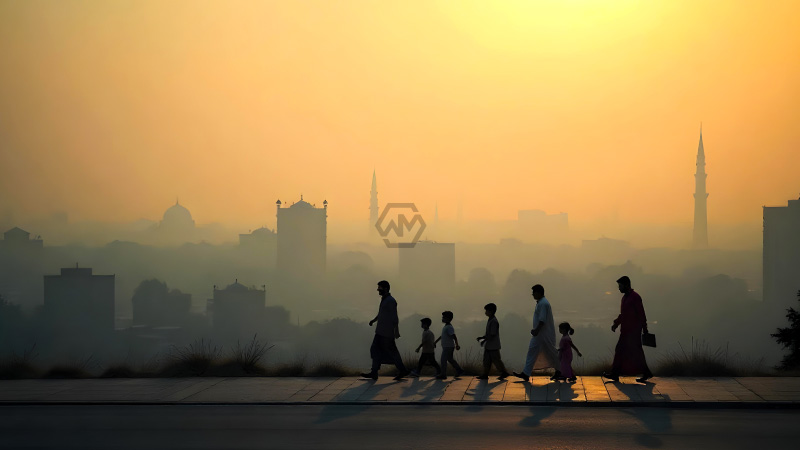- Lahore has the world’s worst air quality (AQI 354), with severe public health impacts.
- Karachi ranks 13th globally for air pollution, posing health risks to millions.
- Vehicle emissions and industrial activities are primary pollution sources in both cities.
Lahore’s air quality has reached hazardous levels, becoming the most polluted city globally with an Air Quality Index (AQI) of 354. The smog has caused respiratory illnesses in over 1.8 million residents, with thousands seeking medical help for conditions like asthma and lung infections.
In Karachi, Pakistan‘s largest city, the AQI of 164 places it in the “Unhealthy” category, exposing millions to serious health risks. Despite efforts to mitigate air pollution, emissions from the bustling port, heavy traffic, and industrial zones continue to plague the city.
Combating Smog: Pakistan’s Urban Health Emergency
The alarming pollution levels in Lahore and Karachi highlight the urgent need for systemic change. With over 60% of Karachi’s and 80% of Lahore’s pollution linked to vehicle emissions, introducing stricter regulations on fuel standards and encouraging public transport are essential steps. Industrial emissions also demand tighter controls and cleaner energy initiatives.
Public health experts emphasize the compounding effects of smog, which exacerbates respiratory and cardiovascular diseases. Over 6 million cases of cardiothoracic disorders in Lahore alone illustrate the severity of the issue. Furthermore, the winter smog season intensifies these health crises, disproportionately affecting vulnerable populations, including children and the elderly.
The societal impact extends beyond health. Educational and economic activities are disrupted as smog reduces visibility and outdoor mobility. This adds another layer to the challenges faced by these cities, already grappling with infrastructure deficits. Environmental NGOs like the Climate Action Centre continue advocating for sustainable urban development to combat these effects.
Global attention is now on Pakistan to address this escalating crisis. Collaborative efforts between government bodies, environmental groups, and citizens could pave the way for a cleaner, healthier future. Public awareness campaigns, incentivizing renewable energy adoption, and improving waste management systems are crucial for long-term change.
The severe air pollution crisis in Lahore and Karachi demands immediate action to protect public health and secure a sustainable urban future.
“The greatest threat to our planet is the belief that someone else will save it.” – Robert Swan



